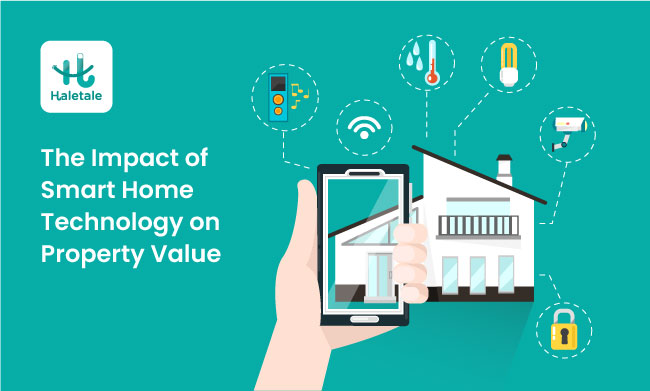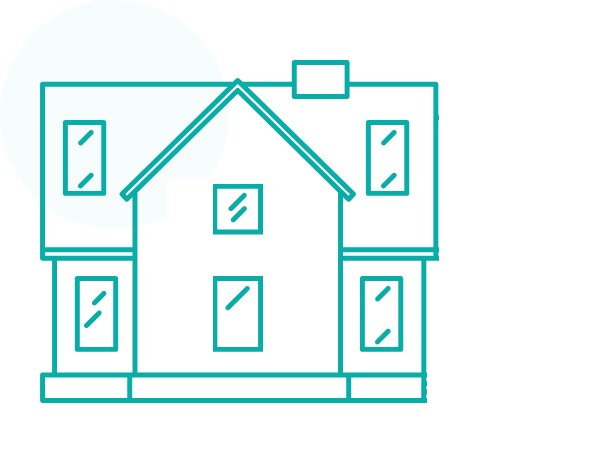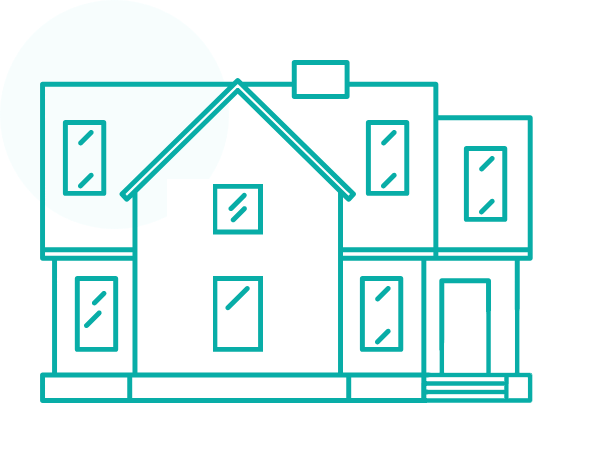Real estate is reshaped by technology, and thus smart home technology is on the rise as one of the essential determinants of property value. This comes with the use of smart thermostats, security systems, and automated lighting among many more connected
devices, thus attracting many more tenants, homeowners, and even property managers to the convenience, security, and energy-saving potential. In today’s blog, we explore smart home technology and its impact on property value, from the view of various
stakeholders, including key benefits and considerations.
- Understanding Smart Home Technology and Its Growing Popularity: Smart home technology refers to a range of appliances and systems that make life in homes easier, more secure, and more efficient. Some smart devices include a smart thermostat, which can automatically learn its owner’s preferences, and connected lighting and security systems that allow remote access and control. This makes smart home technology sought after: it adds convenience, cuts energy costs, and provides more protection – qualities that benefit both tenants and homeowners alike, and most importantly, property managers.
- Smart Technology’s Influence on Property Value for Homeowners: For homeowners, incorporating smart technology into their properties increases property resale value. Today’s buyers are usually savvy and ready to pay a higher price for properties that feature modern smart systems. As real estate researchers have already proven, houses with smart technology sell faster and at a higher price because they are perceived to be safer, more efficient, and future-proof.Primary Benefits to Homeowners:
- Added Resell Value: Smart houses are perceived to be more sophisticated, and therefore, they provide added resale value.
- Energy-saving Efficiency: Smart thermostats and lighting systems save energy, which in turn saves money in the long run.
- Enhanced Security: A smart security system adds an extra layer of protection to a home, making it more appealing to potential buyers.
- Smart Home Technology and Tenant Appeal: Smart houses are more attractive to tenants. Convenience, safety, and savings from lower utility bills are all improved by smart technologies. Smart houses can fetch higher rents and attract better tenants faster.The following are key benefits for tenants:
- Increased Convenience: Smart devices, such as keyless entry systems and remotely controlled lighting, make daily routines easier.
- Savings on Utilities: Energy-efficient home appliances save tenants money on utility bills.
- Better Security: Tenants feel safer with smart security systems, such as video doorbells or motion-detecting cameras.
- How Property Managers Benefit from Smart Home Technology: Property managers can easily monitor buildings using smart technology, even enhancing tenant satisfaction. Building management systems that allow remote monitoring, automated reminders for maintenance, and predictive maintenance help managers better manage their assets while reducing operational costs.Key Benefits to Property Managers:
- Prudent Management: The remote access of smart devices allows property managers to address small issues without visiting the site.
- Reduced Vacancy Rates: Smart home-enhanced properties are more appealing and can help reduce vacancy rates.
- Enhanced Security and Maintenance: Smart security systems monitor the property 24/7, minimizing the chances of vandalism or other malicious acts, while keeping the property in top condition.
- Smart Security Systems and Their Role in Property Value: One of the most appealing features of smart home technology is enhanced security. Smart locks, video doorbells, and security cameras provide physical security for properties, which in turn increases their market value. Buyers and tenants are usually willing to pay more for properties that offer comprehensive security solutions.Primary Security Gains:
- 24/7 Monitoring: Smart security devices allow live monitoring and alerts, keeping property managers or homeowners safe, even from afar.
- Higher Tenant Retention: Improved security increases tenant renewals, reducing turnover and vacancy rates.
- Increased Buyer Confidence: Enhanced security features boost buyer confidence, making properties more attractive to potential investors.
- Energy Efficiency and Smart Home Technology’s Appeal to Eco-Conscious Tenants and Buyers: Energy efficiency is another major benefit of smart home technology. Devices that automatically control heating, cooling, and lighting help optimize energy consumption in homes, making them more eco-friendly. Smart homes significantly minimize energy usage, appealing to environmentally conscious tenants and buyers. This also helps reduce the property’s carbon footprint and lowers energy bills.Energy Efficiency Highlights:
- Lower Utility Bills: Tenants and homeowners save money on energy bills, making smart homes a more attractive investment.
- Eco-Friendly Appeal: Smart homes are becoming more accessible and are seen as eco-friendly investments, appealing to a wider generation interested in sustainability.
- Eligibility for Green Certificates: Properties with energy-saving ‘green’ technology may qualify for ‘green’ certifications, increasing their value.
- Potential Challenges in Adopting Smart Technology for Property Managers and Owners: While there are many advantages to smart home technology, it also comes with some challenges. These can include high initial investment costs, compatibility issues with existing systems, ongoing maintenance costs, and the need for technical expertise to manage smart systems properly.Challenges to Consider:
- High Upfront Costs: The initial cost of installing smart technology can be substantial, which may cause hesitation among property owners.
- Compatibility Issues: Older properties may require upgrades to accommodate smart devices.
- and Security Concerns: Any connected device poses a risk to data privacy. Property managers and homeowners need to ensure these devices are secure to avoid unauthorized access.
Conclusion: The Future of Smart Home Technology and Property Value
In summary, smart home technology is influencing and changing the real estate market in general. Changing demands of smart properties will help homeowners, tenants, and property managers differently. Take the case where homeowners will take the chance
to improve market appeal while tenancy will benefit from added convenience and security, mainly improvement in efficiency and tenant satisfaction by the property managers. As technology advances, smart features are no longer a luxury but a smart investment
to add long-term value and be competitive in the real estate landscape of today.
FAQs:
Q: How can smart home technology improve the value of the property in the eyes of the homeowners?
A: Actually, for the homeowner, smart home technology can significantly increase the value of the property. House potential customers become easily attracted by house features with energy-efficient thermostats, security systems, and automated lighting,
among others. It tends to make sales faster and thereby resale at higher prices.
Q: What smart home features are valued most by property managers?
A: According to most property managers, the best features of a smart home would include an improvement in security and ease of maintenance. For example, smart security systems enable remote monitoring, and automated reminders of scheduled maintenance
tasks with warning signals predict problems that need urgent attention so that time will be saved and expenses related to the operationalization of units will be reduced.
Q: Are smart home features appealing to tenants?
A: Yes, smart home features are highly appealing to tenants. Many tenants prioritize convenience and security, and smart devices like keyless entry systems, video doorbells, and smart thermostats provide these benefits. Properties with smart technology
often attract high-quality tenants and may even justify slightly higher rental rates.
Q: What challenges should homeowners consider before buying smart home technology?
A:Smart home technology offers many benefits but poses such problems as high initial costs, a possible clash with older systems, and data privacy issues. Each owner should therefore make decisions based on the pros and cons: determine whether the devices
are compatible, and ensure there is strict cybersecurity to protect the residents’ data.









